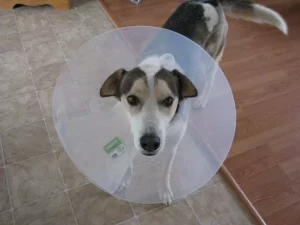0


Although some pet owners worry that their best friend might react negatively to chicken or another component, canine food allergies are uncommon. Only 0.2% of dogs, according to studies, have food allergies.
Your dog is far more likely to be experiencing a food allergy or intolerance if he or she is exhibiting symptoms of an upset stomach. This problem could be a more serious indication that the ingredients in your dog’s food aren’t properly prepared or that the food is too harsh on their stomach.
Do you suspect that your dog has allergies? Have you observed that your pet experiences frequent seasonal allergies or severe allergic reactions? You should consult your veterinarian as soon as possible if you suspect that your dog may be suffering from an allergy of any kind.
People frequently assume they will have digestive problems when discussing pet food allergies. However, stomach distress may or may not accompany food allergies in dogs.
The reactions in dogs’ skin are actually the most typical signs of food allergies.
It’s crucial to keep in mind that food allergies might manifest at any time. An allergic reaction to food your dog has been eating for years without incident may occur abruptly, or symptoms may appear soon after you modify your dog’s diet.
It’s not always easy to determine whether a dog has food allergies. There isn’t a quick test that can determine what your dog is allergic to or even whether he has food allergies at all.
To determine for sure whether the skin or ear problems your dog is experiencing are brought on by food allergies, you must start at the beginning with your veterinarian’s assistance.

Starting your dog on a food trial is giving them only the prescribed diet for a few months to see if their symptoms go away.
Whether so, some vets advise switching the dog back to their previous diet to observe if the symptoms reappear in order to confirm that the dog is in fact allergic to one or more components of their “normal” food.
In conclusion, take care of your pet. If you are not sure of anything happening to it, please consult a qualified vet.
Don’t feed anything weird to your dog, If you have your own DIY meals, please consult your vet about the ingredients of your meal. Otherwise, it;s always better not to risk the life of your pet.